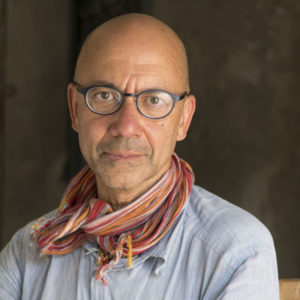Pradip Malde is a photographer and professor at the University of the South, Sewanee, TN, where he is the co-director of the Haiti Institute. Much of his work considers the experience of loss and how it serves as a catalyst for regeneration. He is currently working in rural communities in Haiti, Tanzania and Tennessee, designing models for community development through photography. Works are held in the collections of Museum of the Art Institute, Chicago; Princeton University Museum; Victoria & Albert Museum, London; Yale University Museum and the Scottish National Portrait Gallery, Edinburgh, among others. He has recently been appointed as a Faculty Fellow by the Appalachian College Association, and a 2018 Guggenheim Fellow, for both of which Malde will be completing work and preparing a book of photographs about female genital cutting, that “looks askance at the explicit but, with widened eyes, directly at loss and sacrifice”.
Malde was born in Arusha, Tanzania in 1957. His parents were the children of Indians who emigrated to East Africa, and after having established a privileged life in Tanzania, fled from the turmoil that spread through that region in the 1970s. Concerned about loss and belonging since then, he has come to think of artifacts as membranes, where what may be explicit and immutable begins to lead us into the more mutable realms of meaning and memory.
